Spot On: Putting the "super" in superhero games
Action-packed comic adventures should fit gaming like a spandex jumpsuit, so why do so many of them turn downright villainous?
According to canon, Superman has only two major weaknesses: kryptonite and magic. However, gamers might want to add a third: interactive entertainment. It has been 30 years since the Man of Steel first took on games with the Atari 2600, but he has yet to land a signature success, with major releases ranging from fair to abysmal.
Gaming adaptations have claimed more victims than just Superman. Characters like Batman, Spawn, the Hulk, the Fantastic Four, and a host of others have endured uncanny beatings at the hands of reviewers over the years. While there are definite exceptions, the intersection of comics and games is still littered with disappointments. To find out why these titles might have a less-than-super track record, GameSpot spoke with creators of superhero games past, present, and future.
With great powers come great logistical difficulties
As vice president of Marvel's interactive business, Justin Lambros works with development studios to create games based on the comic book maker's vast catalog of characters.
"One of the biggest challenges is just making sure that the character is game-able, frankly," said Lambros. "Not all characters are meant for games."
For instance, the brute strength of the Incredible Hulk and his relatively simple motivations ("Hulk smash!") are a natural fit for games. But Lambros says it would be much trickier to represent the abilities of characters like the wheelchair-bound psychic Professor X or the sorcerer supreme, Doctor Strange, in a way that would live up to the expectations of their fans.
"Take Hank Pym," Lambros said of the size-shifting character that has fought crime under the aliases Ant-Man, Giant Man, and Yellow Jacket. "His character is science and experiments and trying to figure things out. One of the challenges is how that would translate into gameplay."
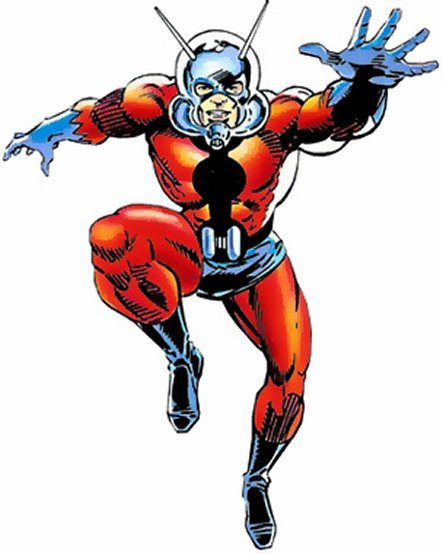
Lambros might have to address the issue of an Ant-Man game soon enough. While there's no gaming tie-in yet, director Edgar Wright (Shaun of the Dead, Spaced) is set to helm a 2010 feature film based on the diminutive do-gooder. If there is to be an Ant-Man game, expect it to arrive directly alongside the film. Lambros pointed out that all the advertising to increase public awareness about films works to promote the merchandising tie-ins as well.
"The amount of money and marketing power and reach that's put behind any movie is going to dwarf any game's [marketing] budget just with the reach and the power that the studios have," Lambros said.
If Ant-Man has a movie coming out and his gaming glory is still far from assured, the picture is that much bleaker for other, movieless Marvel B-listers.
"I would love to do that," Lambros said of making games based on more obscure characters along the lines of Moon Knight. "There are a lot of characters I have fondness for that aren't the top roster guys but have cool power and backstory. But I'm still in the licensing business, and I rely on my game partners and publishing partners to get behind these products, and they gravitate toward the known quantities, the movie launches and that sort of thing."
Striking while the Iron (Man) is hot
That translates into hard deadlines for development teams, as few companies are willing to delay a game and miss out on the lucrative theatrical promotion window. (Although that's exactly what Electronic Arts did with Superman Returns, pushing the game back to coincide with the holiday DVD release of the film because of the difficulties associated with making an open-world game.)
As Lambros explained, "We always want to do the best thing for the product and the brand, so there are discussions about [delaying game tie-ins], but we always want to hit when the iron is hot and come out with the film."
In addition to having a hard deadline on one end of the development, Lambros said gaming tie-ins often aren't brought into the process early enough in the film's development.
"It's very rare that you have over two years [to make these games]," Lambros said, "but we're working hard to get those plans working and get early preproduction work on games way in advance of the movie so we've got more than two years to build a stronger game and raise the bar."
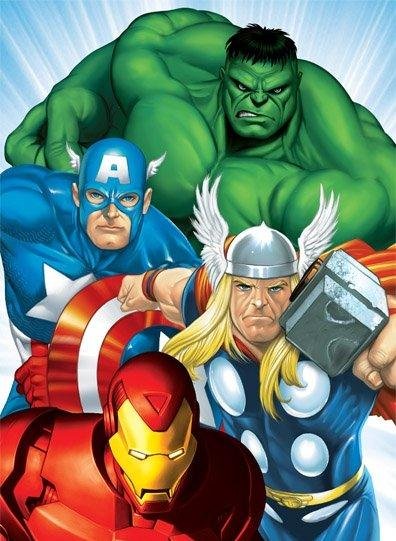
Part of Marvel's solution to that problem lies in its current movie-based game deal with Sega. The four-brand deal involves games based on the Iron Man movie, as well as upcoming projects for Hulk, Captain America, and Thor. While those last two film projects don't have too many specifics nailed down, the deal lets Sega get the gears moving on those projects further in advance of the release of the films.
Hulk smash conventional wisdom!
To see the impact a film tie-in can have, one need only look at the last couple of Hulk games. In 2003, Vivendi Games and Radical Entertainment launched Hulk, a game tie-in for the Ang Lee-directed film of the same name. The game was released about a month before the film and received unspectacular--but still respectable--reviews. Fast-forward to 2005 and Radical's second crack at the license, The Incredible Hulk Ultimate Destruction. The game had no movie tie-in, but its open-world approach to the character and ability to "weaponize" anything from a car to a cow led to a much more positive critical reception. Even so, Lambros said the second game sold "not nearly as well" as the first.
"Ultimate Destruction was a superior game definitely," Lambros said, "but it didn't hit as big an audience... It's that awareness that came with the big-budget Hulk film, the Super Bowl TV spot, the hype, and the big June opening."

Marvel is taking lessons from that for the next game featuring the green goliath, Lambros said. With a new Hulk film set for release this summer, Marvel has development studio Edge of Reality working on an accompanying Ultimate Destruction-style open-world game that he hopes will capitalize on the Hulkamania at its highest point.
Having worked on both Hulk and Ultimate Destruction, Radical Entertainment executive producer Tim Bennison is well aware of the special challenges a superhero game presents developers. Many of the problems are cascading, perhaps aggravating or creating new challenges.
"People expect the Hulk to be the strongest guy in the Marvel Universe; otherwise you're not delivering the Hulk," Bennison said. "Everybody knows Hulk can jump across buildings, so you've got to deliver that and put it in an environment where he can jump over buildings, and that means an open-world game, which is hard to develop and get right."
And even if a developer can create an open-world game that faithfully replicates a character's powers and can deliver it in time for a theatrical tie-in, there are other issues to consider. While Radical was fortunate that the unchecked rage of the Hulk lends itself to a game like Ultimate Destruction, it's not an appropriate solution for more straight-laced heroes.
"There's this concept of a moral code that a lot of superhero characters have, which, quite frankly, players don't have," Bennison said. "The concept of a Superman game is really tough to pull off, and not just because of technical issues. It's because of the fact that Superman doesn't do bad things, and players--especially in an open-world game--want to do bad things. Being told that you can't push the school bus off the cliff because that's not what Superman does is annoying to a player."
Finish him...or not.
As annoying as that design decision might be, it isn't always the developer who is making the decision. When a developer makes a game based on a comic book, a film, or any other property, the licensor has the final say in how its brand and characters are depicted.
For instance, Midway is developing the recently announced Mortal Kombat vs. DC Universe, but the game won't feature the gory fatalities for which the fighting franchise is known because DC isn't about to sign off on having its heroes rend opponents limb from limb (or vice versa) in an M-rated game. Despite the absence of severed heads, Mortal Kombat creator Ed Boon said the gameplay will still be distinctly MK.
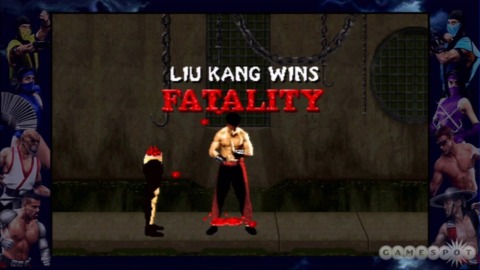
"This game without a doubt is going to be brutal and intense and dark," Boon said. "That whole presentation we've always given Mortal Kombat is not going to go away. In fact, the general fighting experience is going to be more intense than in previous games, but there will definitely be a line we won't be able to cross without becoming an M-rated game."
The level of violence wasn't the only uncrossable line DC set.
"[DC] gave us guidelines that in my opinion were pretty general," Boon said, "It was stuff like Superman does not kill, basic actions their characters don't do. And then there were things about the looks of the characters, making modifications."
Boon said the developers could have guessed most of the guidelines, but when it came to how DC characters would act in the game's situations, the team enlisted DC scribes to ensure authenticity to the comic brand. However, Mortal Kombat is a brand unto itself, having been licensed for movies, cartoons, toys, and more, so Midway isn't about to turn over complete story control to external parties.
"The DC writers help with the DC characters," Boon explained. "How Scorpion behaves or what he says is written by our writers, the guys on our team who wrote the story. The DC guys really helped us with the DC characters and how they would react in a situation when they're confronted by this Mortal Kombat character."
The integration of the two universes and the resulting approval process prompted Boon to design the development schedule to mitigate any associated delays or hold-ups.

"We have a cast of 20 characters, 10 from MK and 10 from DC, and we front-ended our production of the characters," Boon said. "We did all of the DC ones first because we wanted to get them through the approval process. You send them design sketches of the characters, you send the final 3D model of the character, the special moves... There's a lot of back and forth to get those approvals, so we front-ended it to get ready in case there were any major hiccups."
Even if Midway and DC representatives agree on how to handle something in the game, it's not necessarily a done deal.
"There's DC, and then there's also [DC parent company] Warner Bros.," Boon said, "and within each group there are multiple people who look at the content and comment on it. We've had incidents like that, and anytime you're licensing something, you're going to get that. There have been things one approved and the other had issue with, and vice versa."
Creative license revoked?
The problem of dealing with multiple licensors is a familiar one to Secret Level's Jeffrey Tseng. The director of Sega's just-released Iron Man movie adaptation had a particularly trying licensor experience working on Atari's 2003 Magic: The Gathering - Battlegrounds game for the Xbox and PC.
"That one had many issues in what the underlying direction for the title would be," Tseng said. "Atari wanted to do a more action-based game. It was tough for the guys at [Magic creator] Wizards of the Coast to wrap their heads around that because they basically just do the card game. And in between there was also [WOTC owner] Hasbro, which wanted to be in on the communication between us. It's not that anybody was really screwing things up; it was all about the speed and frequency of communication to make things go smoothly."
Tseng said that the process was greatly streamlined for Iron Man. Where most Marvel movie adaptations would require approval from the comic book creators as well as the film studio, the two were one and the same on Iron Man, the first in-house film from Marvel Studios. He also called it the best relationship he'd ever had with a licensor, which might not be surprising considering that his contact at Marvel, Lambros, was a producer at Iron Man publisher Sega immediately before assuming his current position.
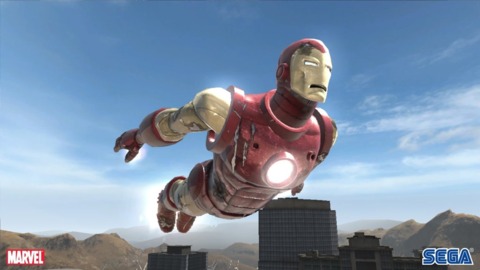
Beyond tight time schedules, translating powers into fun gameplay, and communication issues with licensors, Tseng said there are additional problems caused by making games based on films and stories that are themselves still in the process of being made.
"Let's say you're doing a game on a new fantasy movie that's coming out," Tseng said. "Sometimes it's hard to get access to the script. Sometimes there isn't even a script. A lot of times they'll change things halfway through a project and say, 'Oh, he's not going to use a sword; now he's got a bow.' And you can obviously see the effect that has on a game in terms of level design and all sorts of things."
Tseng said his team was fortunate that Iron Man was a firmly established character, so they knew they could rely on certain abilities and game mechanics that would be in the film. For instance, the team had Iron Man's in-game flight mechanics locked down before the filmmakers had theirs finished, although tweaks in the film did require some last-minute scrambling, such as to incorporate the suit's "air brakes."
It wasn't just additions to the film that put restrictions on the game's developers. Things left out of the movie placed entirely different limitations on the Secret Level team.
"The first question everybody asks is, 'Is he going to be drunk in the game?'" Tseng said, referring to Iron Man's alcoholic alter ego Tony Stark. "The second thing is, 'Is [supporting character] War Machine going to be in there?' That's pretty much across the board. But both of those things are dictated by the film. Obviously the guys over at Marvel are aware of this and they're looking at it maybe for the next film. Those are things that we wanted to integrate too, but we can't get ahead [of the movies]. Maybe in the next title."
Bizarro World
Games are a bigger business than ever before, and companies are banking on tie-ins as more than just an afterthought. Just as they might command more respect from outside licensors now, games are themselves becoming hot licenses and jumping the divide into the various media from which they so frequently borrow. Marvel has produced a variety of Halo comics in recent years, Image is working on a comic for Electronic Arts' Dead Space, and DC is making comics based on Gears of War and Radical Entertainment's current project, Prototype.
Having seen the licensor approval process from the other side with the Hulk games, Bennison is gaining a new appreciation for his counterparts' concerns as Prototype prepares to branch out beyond games.
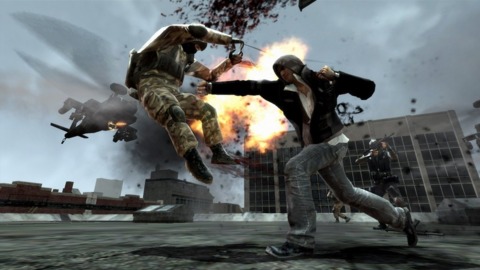
"It's very interesting because you really do have to have a solid set of written-down ideas as to what the universe is about," Bennison said. "It's not just the character and his name and what he can do. Way beyond that, what's the backstory? What are the bios of all the secondary characters? What are the rules we do break, and what rules don't we break? What's the tone of the whole IP? How do we treat humor? Do we allow the humor in? If so, what's the style? How do we put a clamp on things getting over the top? Everything about the IP is translated into the other medium and has to conform to that."
At the same time, Bennison has to straddle the line between preserving the integrity of his own brand and preventing his partners from doing their jobs properly.
"We've got a lot of control," Bennison said. "We review every mock-up cover from the artists, we reviewed the over-arching plotline for the multi-issue series, and we're doing multiple revisions and comments on the script we're getting from the writers. We'll be reviewing mock-ups on the pencils and whatnot too. DC has been really great, really collaborative in allowing us to participate in the process, but we don't tell them how to do their job; they're the comic book experts."
While many of the challenges facing developers of superhero games are inherent to the process, Bennison believes things are getting better, particularly with the film adaptations.
"Movie people now are starting to understand how long it takes to make a game and how the timescales are different than for a movie," Bennison said. "They're understanding that if they want to get a quality product out, they have to approach developers earlier. In terms of which games work for superheroes, more successful models are coming out. The problems will still be there, but people are getting smarter about them."
While it's possible for a shoddy game to rack up sales on the strength of a strong tie-in, Lambros said licensors would be wiser to make sure all the games bearing their brands are of a high quality.
"Gameplay is king at the end of the day, so you can't put the Spider-Man or Iron Man or Hulk name on a crappy game, because it may sell but you won't sell the next one and you won't be moving the industry forward or changing the perception of [licensed games]," Lambros said. "Nobody wants another lousy licensed game."
Got a news tip or want to contact us directly? Email news@gamespot.com
Join the conversation